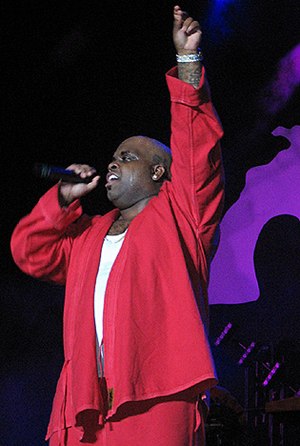I just returned from a discussion with a local company that is considering doing an advertising campaign that uses a version of the eff-word.
The under-20s on their staff think it’s terribly clever. The over-40s suspect it’s a PR mistake. The 30-somethings are torn between fear of looking uncool by putting a lid on it and fear of looking stupid if the campaign blows up.
They wanted my opinion, and my opinion was: The public isn’t ready for the eff-word. Not yet.
This discussion comes just as Cee Lo Green’s snappy little pop song with the eff-word, imperative, in the title has been banned from radio but has a video that’s racking up 4 million views on YouTube. This made me realize that we’re at a watershed in the evolution of the American vernacular.
Until recently, we’ve framed the argument about the eff-word in terms of a choice about how to handle obscene words. It’s been people who think obscene words should be censored vs. people who think obscene words should be spoken in the name of free speech.
That argument hasn’t changed. What has changed is public opinion about whether the eff-word is an obscene word.
Do you think the eff-word is obscene? Well, is it?
For most people under age 30, living in urban areas, I think the answer to that question has become an emphatic “No.” Or perhaps an emphatic “Huh?” — spoken in a tone of mild incredulity.
Or simply, “Eff, no!”
“Eff” is a word that had an obscene connotation in the 1960s. But by the 1980s it was a form of punctuation in Wall Street conference rooms and by the 1990s it had become a quasi-obligatory rhythm track for rappers.
There’s a trend here.
I expect that 10 or 20 years, we’ll hear as much “eff” and “effing” as we now hear “damn” and “bitching” — and have about the same reaction. And I imagine I’ll live long enough to hear someone refer to the eff-word as “quaint” and “dated.”
What do you think?

In 1950’s America, a lot of words probably were obscene. But when baby boomers expanded the Alternative Press in the 60’s, I think the naughty words became rudeness more than obscenity. Not that the old guard didn’t fight back, as witness the legal troubles of Lenny Bruce and George Carlin. But now that the boomers *are* the old guard, that’s where we’re at.
I just finished reading ‘Sandman Slim’ by Richard Kadrey. I wasn’t counting, but I think the F-word was on every last page. Well, it fitted the book’s theme.
Using rudeness in advertising may be “edgy” but it’s iffy. There are lots of ways to be rude, but unless you know your audience and can strike a nerve, rudeness is more likely to offend, and turn people away. It tends to be a cheap trick that shows a lack of imagination.
There have always been artists who deliberately shocked their audience. What I liked about Marilyn Manson is that at least he found new ways to shock us.
Nearly every one I’ve talked with about this topic has agreed that the definition of what is obscene has changed — and offered up a few words that are now considered obscene. Most of the new obscenities are “hate” labels. I guess it’s not a bad thing that hate has become obscene.
I think I would distinguish disgust with the concept, versus disgust with the speaker. The classic obscenity was of the first type: ick ewww ! The second is what Tom Lehrer talked about: “I know there are people in the world that do not love their fellow human beings and I hate people like that.”
Well, better to be against hate than against sex. Now if only we were against violence.